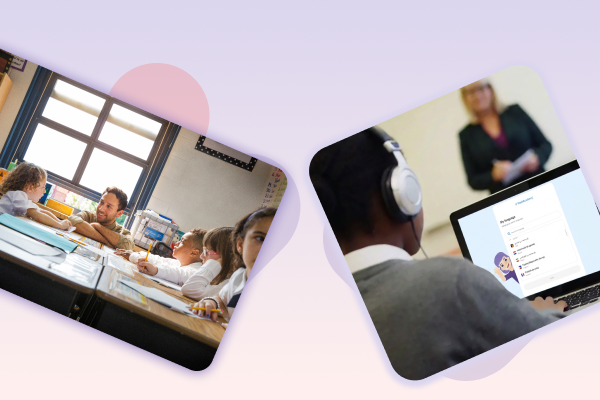

This blog article touches on the personal experiences of Gemma, a formal teacher and was also written by Gemma Carrington, Senior Education Advisor at FlashAcademy®.
With teachers across the country now required to undertake the new EAL proficiency assessment for all of their pupils with EAL, I wanted to share my experiences of talking to teachers across the region about this new statutory requirement.
Clearly, one of the most important priorities of a teacher is to show consistent pupil progression over time and in order to measure and track progression, with teachers supported by a variety of assessment documents, strategies and tools. However, from my experience and speaking to many other teachers, measuring the progression of a pupil with EAL has sometimes been an area of confusion as there has been no clear statutory framework for teachers to assess pupils against.

The DfE requires teachers and schools to report a proficiency in the English level for EAL pupils in listening, speaking, reading and viewing and writing. There are several new EAL proficiency assessment frameworks that have been created, such as the one designed by the Bell Foundation, which is a strong research-based tool to help teachers to recognise the language achievements and needs of EAL pupils across the curriculum. On so many occasions, I have witnessed teachers (including myself), implement inconsistent and unreliable assessments for EAL pupils that are not derived from specialist research and practice. This can lead to future misunderstandings about EAL progression, making it challenging to track the progress of a pupil across all curriculum areas.
One of the best features of the new EAL assessment framework (Bell Foundation) has developed is that it not only provides assessment criteria for teachers but also offers practical, classroom-friendly strategies on how to assess these criteria, so teachers are not left feeling confused about how to carry out their assessment.
Once an assessment framework is in place, it’s then down to the teacher to plan the time to carry out the EAL proficiency assessment and this in itself can be a difficult task, depending on the number of EAL pupils that are in the class/school. From experience, unless an efficient system is put in place, assessments can often feel arduous and may become a burden for the teacher, alongside their general teaching work.
As part of the Learning Labs team, I am now part of a project team exploring how in future, the EAL proficiency assessment might be digitised. So, pupils could simply complete a number of challenges on a PC/tablet to automatically assess their proficiency grade, with specific learning recommendations for each pupil.
As a former teacher, I’m convinced that a digital assessment could save so much teacher time across the country and also provide a more consistent register of assessment grades, against which further progress can be tracked. It won’t be a simple task, but everyone working towards it is looking forward to seeing just what kind of impact it can make.
If you’re a teacher working with EAL pupils and if you have any thoughts/ideas about our work to digitise the EAL proficiency assessment, please do feel free to drop me an email on gemma@flashacademy.com. I would love to hear from you. You can also read Gemma’s first blog article on the EAL Challenge.
Gemma Carrington, Senior Education Advisor at FlashAcademy®.
Also, feel free to check out our EAL case study at Great Barr Academy: https://youtu.be/Z0glSsKz-U0

